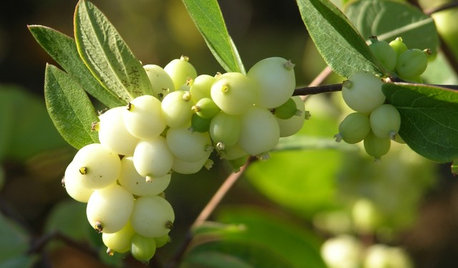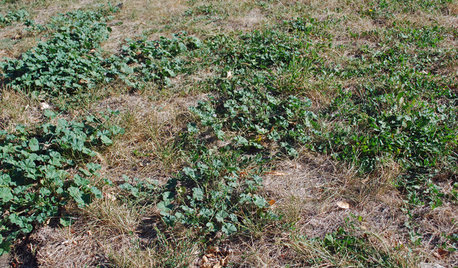Worm knowledge, please
lincann
11 years ago
Related Stories

GARDENING GUIDESHouzz TV: Make a Worm Bin for Rich Soil and Happy Plants
A worm-powered compost bin that can fit under a sink turns food scraps into a powerful amendment for your garden. Here’s how to make one
Full Story
GARDENING GUIDESGreat Design Plant: Snowberry Pleases Year-Round
Bright spring foliage, pretty summer flowers, white berries in winter ... Symphoricarpos albus is a sight to behold in every season
Full Story
ARCHITECTUREDesign Workshop: Just a Sliver (of Window), Please
Set the right mood, focus a view or highlight architecture with long, narrow windows sited just so on a wall
Full Story
ARTCollect With Confidence: An Art-Buying Guide for Beginners
Don't let a lack of knowledge or limited funds keep you from the joy of owning art. This guide will put you on the collector's path
Full Story
COFFEE WITH AN ARCHITECTArchitect or Zombie?
Hunched over a drafting table through the wee hours, subsisting on coffee and esoteric knowledge ... architects may not be what you think
Full Story
DECORATING GUIDESMy Houzz: A Stylishly Industrial London Flat
Rachel Christie has used her design eye and insider knowledge to create an open and inviting home with a cool edge
Full Story
GARDENING GUIDES10 Tips to Start a Garden — Can-Do Ideas for Beginners
Green up your landscape even if you're short on time, money and knowledge, with these manageable steps for first-time gardeners
Full Story
GARDENING GUIDESWeed War: When and How to Use Chemical Herbicides
Before you spray, arm yourself with knowledge about which weed killers — natural or synthetic — are right for your yard
Full Story
HOME OFFICESWorld of Design: 11 International Architects in Their Home Offices
Thinking about relocating your office to your home? From Sydney to Copenhagen, these architects share their insider knowledge
Full Story
Sales Secrets for Interior Designers
Pro to pro: Learn 3 proven techniques to please clients and increase revenues, developed by a designer with 40 years of success
Full Story





Gerris2 (Joseph Delaware Zone 7a)
lincannOriginal Author
Related Professionals
Clark Landscape Architects & Landscape Designers · Otsego Landscape Architects & Landscape Designers · Saint Louis Park Landscape Architects & Landscape Designers · Clermont Landscape Contractors · Tempe Landscape Contractors · Chelmsford Landscape Contractors · Forest Hills Landscape Contractors · Inglewood Landscape Contractors · Duncanville General Contractors · Goldenrod General Contractors · Kettering General Contractors · Mount Prospect General Contractors · Rancho Santa Margarita General Contractors · Westminster General Contractors · Woodmere General Contractorsmendopete
DWD2
Gerris2 (Joseph Delaware Zone 7a)